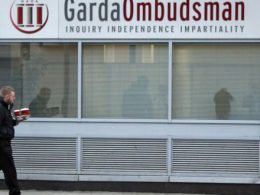Media reporting on the Red C poll published last Friday largely concentrated on the levels of support indicated for the political forces contesting the impending General Election.
However, other aspects of the poll which were largely overlooked, yield highly interesting information as to the mood of ordinary people in society in relation to the calamitous crisis in the financial system.
Respondents were asked, “How much do you agree or disagree with the following statement? We should have defaulted on loans rather than bring in the IMF and EU.” 27% replied, “Don’t Know”, 28% disagreed but an astounding 45% agreed.
I say astounding because this view flies in the face of the huge weight of propaganda in most establishment media over the last two years and in the face of the political and economic establishment also. The chorus of unanimity from these sources is to the effect that there is no alternative but to transfer tens of billions of bad, private gambling debts of international and Irish speculators, bankers and developers onto the shoulders of the Irish taxpayers. Yet 72% of these taxpayers are either opposed or not convinced by this propaganda.
This result shows as well that the main establishment parties are not in tune with the majority in society on this. Aggregate support in the poll for Fianna Fáil, Fine Gael, the Labour Party and the Greens amounts to 74%. Unfortunately, the poll didn’t have a breakdown on the proportion of intending voters for these parties who reject being held responsible for the speculators’ losses.
Nevertheless, it is clear that the political establishment is away behind the majority of the population in their decision to implement the diktats of the financial markets. We had a similar scenario of the main parties being out of touch in the first votes in the referenda on the Nice and Lisbon Treaties.
This means that a very real debate can take place during the General Election campaign. All the relevant political parties must be forced to justify why they support weighing down this generation and the next with private debts for which they bear no responsibility. They must justify why they are prepared to inflict disastrous cuts in public services which will debilitate those services as already seen in the area of Health. And why they would inflict swingeing attacks on the living standards of workers and those dependent on social welfare while ploughing society’s resources into the bellies of the financial sharks.
Another instance of the kind of burden which people will be increasingly saddled with is evident from leaks concerning what will be in the Finance Bill due to be published on 20 January . It’s said to provide for a new “site property tax”. We will label it as a “Home Tax” instead, designed to lay the basis for squeezing more from the bulk of low and average income earners.
This new tax is tipped to start at an initial figure of €100 in 2012. The impression will be attempted to be given that this is just a relatively small contribution which each householder should make because, of course, “we are all in this together.” This will fool nobody as it will be immediately seen as the thin end of the wedge leading to rapid increases in subsequent years until it becomes a further harsh burden on society.
The 45% of the population indicated as opposed to paying off the speculators’ bad debts will see this new home tax as another instalment in that project. This will intensify resistance in society to the proposed new imposition. A mass boycott of this new tax is inevitable which will pitch the mass of taxpayers against any new government elected in March that attempts to implement it.
Incidentally, it is unfortunate that the Red C poll did not include the new United Left Alliance as a distinct grouping in the poll. Because of this we can only guess what proportion of the 12% pledged to vote independent intend to support Left candidates. However an interesting result emerges in the regional breakdown of the poll.
In the Dublin Region, “independents” are showing at 15%, significantly ahead of Sinn Fein at 11%. The bulk of candidates in Dublin who are classed currently in the “independent” sector by polling organisations, will in fact be from the United Left Alliance, the new grouping of the bigger Left organisations. This suggests a significant support for Left candidates in the capital.
And the answer to the question on whether a default should have taken placed suggests that those candidates who reject the policy of beggaring society to bail out speculators reflect far more closely the attitudes of a huge swathe of the electorate. It is a pity that the polling organisations haven’t explored this phenomenon in greater detail.












